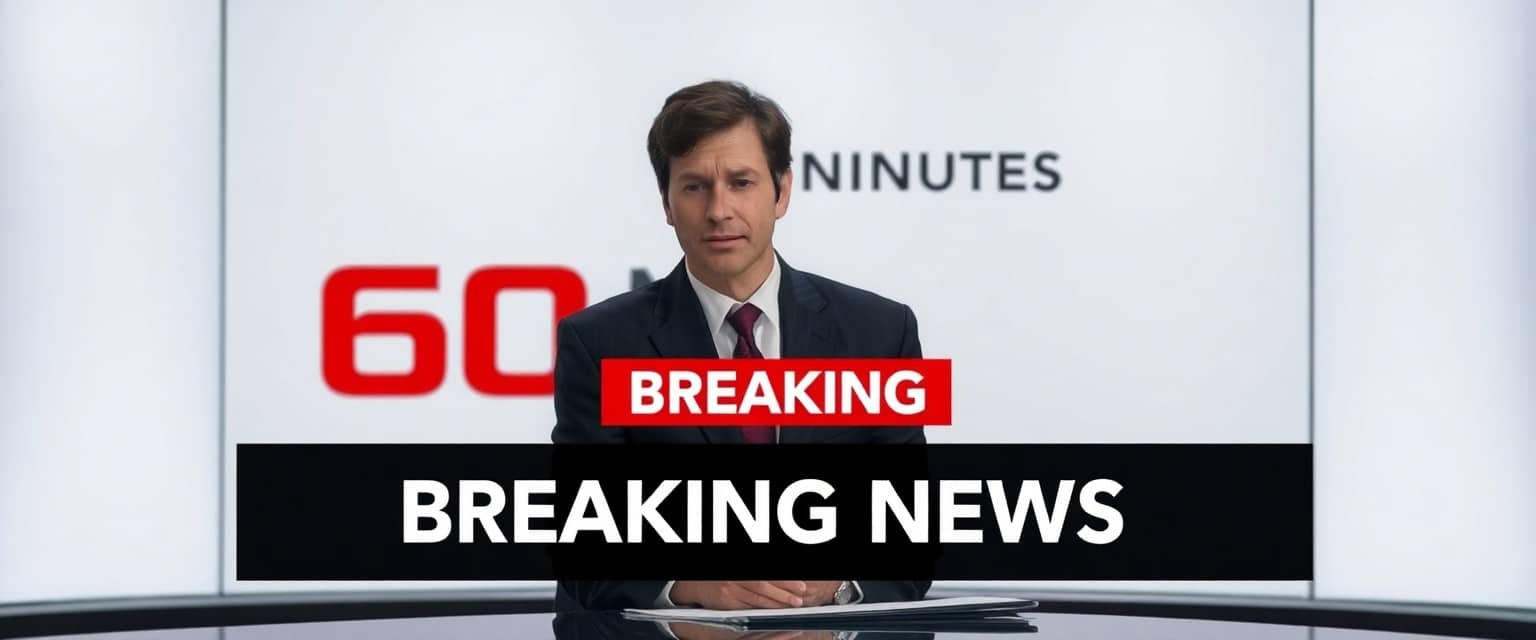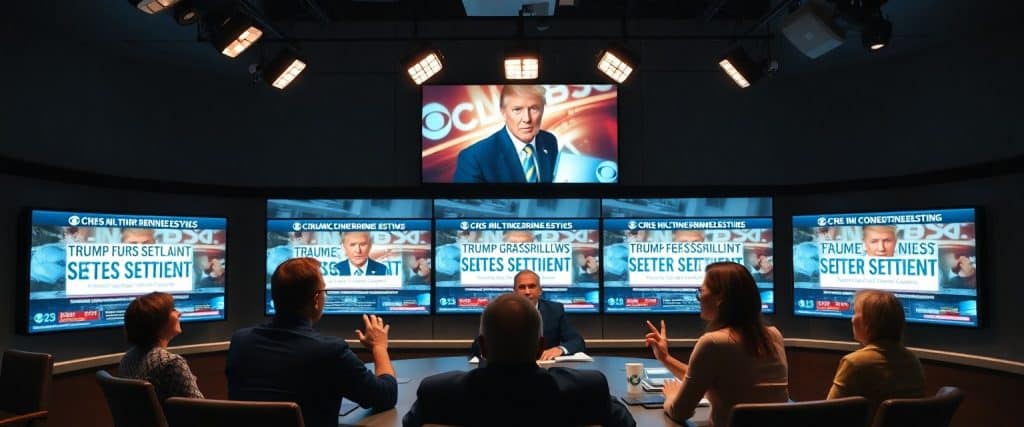Most media observers are watching closely as you witness the fallout from CBS News’ recent settlement with former President Trump. Your newsroom fears this settlement may set a dangerous precedent, potentially emboldening further legal pressure on journalists and media outlets. While this resolution ended a high-profile lawsuit, it also raises serious concerns about editorial independence and the future of press freedom. Understanding these developments is necessary as they affect not only CBS staff but also your ability to access news free from government influence.
Corporate Surrender or Strategic Retreat?
Paramount’s decision to settle with Trump, despite a weak legal case, can feel like a corporate surrender, especially as the $16 million payout funds Trump’s presidential library. Yet, this move also reflects a calculated strategy to clear legal hurdles potentially blocking their Skydance merger approval. You witness an intricate balance between protecting business interests and preserving journalistic integrity, a tension that leaves CBS News staff grappling with uncertainty about the future of their independence and credibility in the face of escalating political pressure.
Implications of the Settlement on CBS News
The settlement sends a ripple across CBS News, testing the newsroom’s confidence in corporate leadership and its commitment to editorial independence. You’re likely to feel the sting of diminished morale when employees perceive that business considerations might outweigh journalistic principles, especially as voices within CBS warn of a “breach of public trust.” This episode could make staff wary of future editorial autonomy, raising alarms about internal vulnerability to external influence.
Analysis of Corporate Decision-Making Under Pressure
Corporate executives often face conflicting pressures when balancing legal risk, regulatory approval, and public perception. Paramount’s swift settlement under Trump’s intense legal and political firepower highlights the difficult crossroads where business imperatives can prompt compliance rather than defiance. You see the firm navigating a high-stakes environment where the cost of prolonged litigation or regulatory delays might outweigh standing firm on principle.

The High Stakes of Media Independence
Your trust in the media hinges largely on its ability to operate without undue influence, yet Paramount’s settlement with Trump reveals how fragile that independence can be. When corporate interests intersect with political pressure, newsrooms face a dilemma: protect editorial integrity or safeguard business deals. You see this tension underscored by the $16 million payout—the price of silence that risks normalizing government intimidation and weakening the very foundations of free press you rely on to hold power accountable.
Historical Context: Media versus Political Pressure
History shows multiple instances where media outlets have confronted political coercion, from McCarthy-era blacklists to the Pentagon Papers saga. These moments reveal how governments have repeatedly sought to suppress uncomfortable truths, pressuring news organizations through legal threats, economic leverage, or public campaigns. You may recognize similar patterns today, as modern media faces unprecedented challenges from lawsuits weaponized to stifle investigative reporting and dissenting voices.
First Amendment Implications and Precedents
The Paramount settlement spotlights the ongoing battle to uphold First Amendment protections that shield editorial judgment from political interference. Courts have traditionally defended editorial freedom, recognizing that news editing—and even disputed decisions like the Kamala Harris interview—are core journalistic prerogatives protected under free speech laws. Yet, a $16 million settlement signals how legal pressure can circumvent these safeguards, setting perilous precedents that may embolden future attempts to silence the press through costly litigation.
Diving deeper, past Supreme Court rulings such as *New York Times Co. v. Sullivan* established high bars for defamation claims to preserve robust public discourse. Nevertheless, settling outside court risks undermining these doctrines by allowing politically motivated lawsuits to succeed through financial exhaustion rather than legal merit. You should be aware that such outcomes invite more frequent abuse of legal mechanisms, threatening not only individual outlets like CBS but the very ecosystem of investigative journalism necessary to democratic transparency.
Inside CBS: A Culture of Fear
Within CBS News, an atmosphere of unease has taken hold, fueled by the settlement’s fallout. Staffers worry about corporate influence overshadowing editorial independence, especially with Skydance’s looming acquisition. Whispers of self-censorship and second-guessing run rampant as reporters brace for heightened scrutiny and pressure, questioning whether the newsroom can uphold its tradition of fearless journalism amid mounting political and corporate interference.
Staff Reactions and Concerns
You hear from anonymous CBS employees describing a pervasive sense of apprehension and betrayal following the settlement. Many feel the leadership’s decision undermines their work, diminishing trust in the company’s commitment to journalistic integrity. The comparison drawn by Armen Keteyian to a historic breach of public trust resonates deeply, with staff fearing this could signal a chilling precedent for future coverage.
The Future of Investigative Journalism at CBS News
Amid the turmoil, questions loom about investigative journalism’s survival at CBS. You’re left wondering how reporters will continue pursuing hard-hitting stories when legal and corporate pressures threaten to stifle bold reporting. The settlement has intensified concerns over editorial autonomy, raising alarms about the long-term viability of probing journalism in an increasingly hostile environment.
Investigative teams at CBS News face a challenging path forward, balancing the legacy of programs like 60 Minutes with a shifting corporate landscape influenced by Paramount’s settlement and Skydance’s involvement. The stakes feel higher as reporters navigate potential conflicts of interest and tightened managerial oversight. Journalists worry that the $16 million payout and ensuing criticism could embolden future attempts to intimidate newsrooms, forcing difficult editorial decisions about which stories to pursue and which to steer clear of.
Trump’s Legal Tactics: Bullying or Strategy?
Trump’s approach to legal battles, especially against major media outlets like CBS, blurs the line between aggressive strategy and outright bullying. His lawsuits often leverage political influence to pressure organizations into settlements, regardless of the lawsuit’s legal merit. The $16 million settlement reflects a tactic that prioritizes intimidation over courtroom victories, signaling to others that challenging his narratives could come at a steep cost. This method, while effective in silencing opposition temporarily, threatens the independence of the press and sets a dangerous precedent for future dealings between powerful figures and the media.
Unpacking the Lawsuit Against CBS
The lawsuit centered on a contested edit in a “60 Minutes” interview with then-Vice President Kamala Harris, which Trump claimed distorted his words. Though TV interviews are routinely edited, and courts have historically protected such editorial discretion under the First Amendment, Trump’s suit pressed on as a legal maneuver. His case lacked strong legal footing, but through continued pressure and public spectacle, he extracted a $16 million payment toward his presidential library, showcasing how legal actions can be wielded less for justice and more for political leverage.
The Broader Impact of Trump’s Approach on Media
This pattern of frivolous lawsuits and public intimidation has profound consequences for media organizations nationwide. You witness newsrooms grappling with whether to mount costly legal defenses or capitulate under political and financial pressure. Paramount’s settlement signals to other media entities that resistance can be punitive, fostering a climate where self-censorship and corporate caution could supplant journalistic courage and independence. This erosion of press freedom undermines the public’s access to unbiased information and jeopardizes the delicate balance of a democratic society.
By weaponizing baseless lawsuits and leveraging political influence, Trump’s method disrupts the traditional role of the press as a check on power. You’re likely to notice increased reluctance among media executives to confront controversial topics or political figures who wield similar tactics. This chilling effect extends beyond individual cases, potentially reshaping editorial decisions and fostering an environment where fear, rather than facts, dictates coverage. The long-term cost isn’t just to journalists but to the public’s right to scrutinize authority without intimidation.
Transparency as a Defense Mechanism
Revealing the full context behind contested edits, like CBS eventually did with the Kamala Harris interview transcripts and tapes, can undercut allegations of bias or manipulation. Being upfront about editorial choices dispels suspicion and demonstrates a commitment to accuracy, even when facing aggressive legal and political attacks. This transparency not only strengthens legal defenses but also fosters resilience within the newsroom by showing that openness can weaken attempts at intimidation or censorship.
Importance of Accountability in Journalism
Holding your own reporting to high standards of accountability builds credibility, especially under pressure. When outlets provide detailed explanations about editorial decisions and corrections, they reinforce trustworthiness and distance themselves from claims of deception. CBS’s eventual sharing of full interview materials after initial reluctance showcased an effort to be answerable to public scrutiny amidst a fraught legal battle.
Strategies for Maintaining Trust with Audiences
Consistently engaging your audience through transparent communication, timely corrections, and clear explanations about how stories are produced helps you navigate skepticism and political pressure. CBS’s experience shows that detailed context around controversial content, combined with openness about organizational challenges, can sustain loyalty even in hostile environments.

To wrap up
Summing up, after CBS News settled with Trump, you and your colleagues may feel unsettled by what lies ahead. The settlement raises concerns about the pressures media organizations face when challenging powerful figures, and the impact these decisions have on journalistic independence. As you continue your work, understanding the implications of this settlement and staying vigilant about maintaining editorial integrity will be important to preserving the trust your audience places in you and your news organization.

